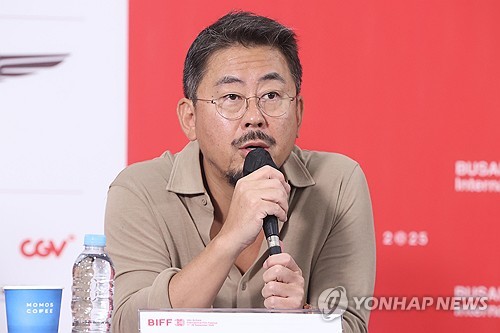The Busan International Film Festival introduced a competition section for the first time at its 30th edition in 2025.
This move was meant to raise the profile of Asian cinema on the global stage.
However, the abolition of the Jiseok Award and changes in how the festival is run have sparked controversy.
Concerns about political independence and preserving the festival's traditions remain.
Competition: Evolution or Seed of Division?
What the change means
The core idea is simple.
Introducing a competition section is an effort to change the festival's scale and reach.
Adding a competition aims to increase exposure for Asian films.
The festival expects greater international attention and ripple effects from awards.
Since its launch in 1996, BIFF has been a platform for the diversity and originality of Asian cinema.
Over three decades it has faced political pressure and public debate, and those moments helped shape its identity.
Historical context
History shows a pattern.
Busan has long been a meeting point between local filmmakers and the international film community.
The festival has discovered emerging Asian directors and promoted exchange since 1996.
However, it has also faced episodes of interference, such as pressure to cancel screenings related to the 2014 Sewol ferry disaster (a major national tragedy in South Korea), which raised questions about independence.
The new competition can be read as an institutional shift.
Institutional change touches governance, judging criteria, and the makeup of awards.
Specific changes
Look at the facts.
Fourteen films were selected for the competition and the top prize title film was screened as the closing film.
The Jiseok Award (created in 2022 to honor mid-career directors) had symbolic value, but it was discontinued in 2025.
This signals a change in how the festival supports established directors and has provoked debate inside the industry.
Introducing competition draws attention to how the festival's budget and resources will be used.
It may reorder funding priorities and has prompted calls to reassess tax treatment and public support mechanisms.

Supporters: Raised profile and opportunity
The potential is clear.
Competition brings attention.
A competition can strengthen Asian cinema's international standing.
Award-winning films often gain better distribution deals and invitations to other festivals.
First, the upside is obvious.
It creates new excitement for audiences and filmmakers and can revitalize the festival's energy.
Second, competition can spotlight not only emerging filmmakers but also mid-career directors.
Prizes help expand distribution opportunities, attract investment, and over time can raise the capabilities of the regional film industry.
Third, exchange with international jurors increases the chances for diverse critical recognition.
Directors are exposed to different standards and perspectives that can broaden their artistic range.
Fourth, from an economic perspective, a competition can draw sponsors and bigger audiences.
The festival's brand value can rise and generate positive impact for the local economy.
Finally, on ethics, a well‑run competition can serve as a quality control mechanism.
If judging is fair and operations are transparent, competition can stimulate critical discussion and raise artistic standards.
Opponents: Threats to tradition and independence
Worries are tangible.
Tradition could be weakened.
Ending the Jiseok Award leaves a gap for mid-career directors.
The consistent support structure that helped sustain their work may be diminished.
First, removing the Jiseok Award is symbolic.
Without a dedicated channel, the visibility of mid-career directors can decline.
Second, a competition can change the festival's character.
If the event shifts toward competition, programs that favor experimentation and niche works may get squeezed.
Third, operational uncertainty matters.
As a first-time initiative, the burden of defining judging criteria and procedures is heavy, and internal disagreements could deepen.
Fourth, concerns about political independence persist.
Past interventions by local authorities remind observers that new structures can become new avenues for influence.
Fifth, a gap between public expectation and real results can backfire.
If the competition fails to improve quality, disappointment and distrust may spread.
Lastly, without ethical and institutional transparency, competition can amplify controversy rather than resolve it.
Absent concrete safeguards, awards risk becoming symbolic gestures instead of meaningful support.
Deepening divide and internal tensions
Conflict was predictable.
Opinions are not easily reconciled.
Supporters stress international standing and economic benefits.
Opponents emphasize tradition, artistic independence, and protecting mid-career creators.
The divide is more than pro vs. con.
It reflects both value judgments and practical trade-offs.
Supporters argue for pragmatism and growth.
They believe competition will strengthen the festival brand and attract audiences and funding.
Opponents argue for preservation and balance.
They say the festival's core mission is to protect new and experimental work, which a competition-heavy model may undermine.
These disagreements extend into operational details.
Who sits on juries, how criteria are disclosed, prize amounts, support programs, and programming priorities are all contested.
Risk of political influence
The danger is real.
External influence has room to grow.
Past experience shows the need for vigilance.
Local government or other outside actors can threaten independence through budgets and appointments.
Political pressure is not just theoretical.
Actual grants and funding structures can open the door to outside influence.
Media framing and public discourse also shape festival choices.
If a film or jury decision becomes politicized, the festival's autonomy can erode.
Therefore, institutional safeguards are necessary.
Transparent judging, regular financial disclosure, and conflict‑of‑interest rules are essential.
Without such protections, competition could be used to legitimize external influence.
That would damage trust and the festival's long-term brand value.

Online reaction and public opinion
Responses are mixed.
Online debate is immediate and loud.
Between netizens and industry figures, arguments for and against are active.
Some welcome change, while others worry about tradition and independence.
On social media, quick emotional takes spread fast.
Positive comments focus on higher international profile and distribution opportunities.
Negative comments focus on the end of the Jiseok Award and fears of political meddling.
Mid-career director communities especially voice concerns about losing steady support.
Public opinion can directly affect future operations.
Audience numbers, sponsorship, and government support may follow public sentiment.
Solutions and proposals
Solutions are necessary.
Balance is key.
Strengthening transparency and fairness must come first.
Publishing judging criteria and diversifying governance should be top priorities.
Concrete steps include the following.
First, ensure diversity and independence in jury selection.
Second, publish regular financial reports to show how funds are used and to increase fiscal transparency.
Third, create replacement or complementary programs for mid-career directors to preserve that ecosystem.
Additionally, establish legal and administrative safeguards to block undue external influence.
At the same time, open communication channels between audiences and filmmakers to build broader consensus on policy changes.
Conclusion
The point is clear.
Change carries both opportunity and risk.
BIFF's new competition could help Asian cinema take a leap forward.
But without institutional safeguards for tradition and independence, controversy will continue.
Ultimately, the festival's path depends on leadership choices and public agreement.
Only with transparent governance, strong ethical standards, and responsible funding will the promises of competition become real.
What outcome would you prefer?
What do you think is the best balance?